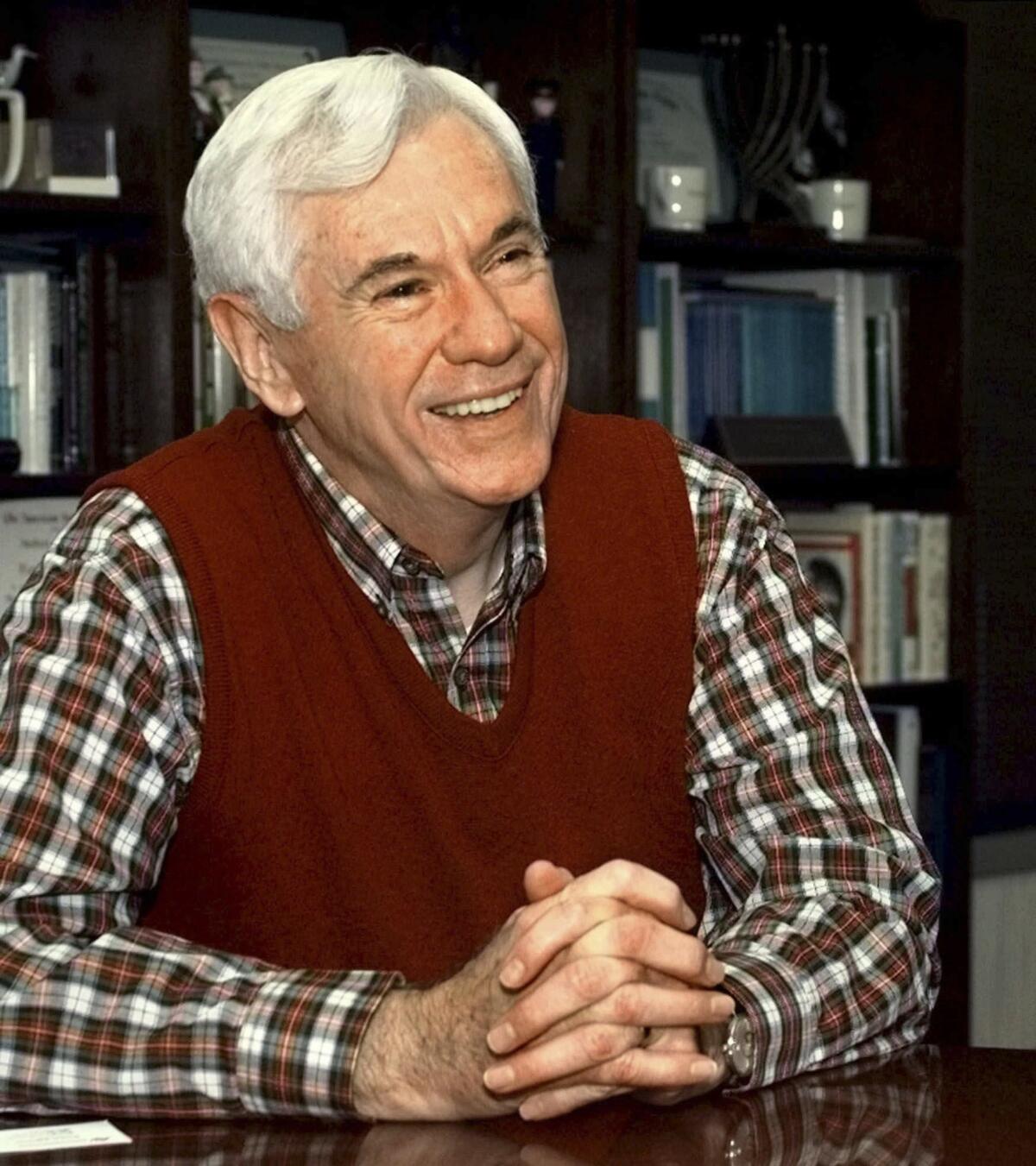Reubin Askew dies at 85; ‘70s Florida governor led school integration

- Share via
Former Florida Gov. Reubin Askew, who guided the state through a period of school busing to achieve integration in the 1970s, died early Thursday at a Tallahassee, Fla., hospital. He was 85.
Ron Sachs, a former aide and family spokesman, confirmed his death. Over the last three months Askew was recovering from hip surgery, had suffered from aspiration pneumonia and, most recently, a stroke.
Askew rose from obscurity in the Florida Legislature to become the Democrats’ surprise gubernatorial nominee in 1970 and then beat the incumbent Republican, Claude Kirk.
His eight years in office coincided with the end of the Vietnam War, Watergate and dramatic social change across the nation. He was a liberal on racial issues and crusaded for overhauling the state’s tax laws, open government, environmental protection, ethics legislation and streamlining the courts and other governmental agencies.
Upon being elected governor, Askew immediately called a special session of the Legislature to put on the ballot a constitutional amendment for a corporate income tax. Askew stumped the state in support of the measure that voters adopted by a 2-1 margin.
In his first year, he also won passage of penal and judicial overhaul, including classification of alcoholism as a disease and the nonpartisan election of judges.
Askew championed racial and gender equality. He integrated the Florida Highway Patrol and appointed the first black in 100 years to the Florida Cabinet and the first black Supreme Court justice.
In 1975, he pardoned two black men, Freddie Pitts and Wilbert Lee, who had spent 12 years in prison, including eight on death row, after being wrongly convicted of killing a pair of white service station attendants in the Panhandle town of Port St. Joe. It was a decision that cost Askew votes in the Panhandle — his home region — when he ran for reelection.
He appointed the first woman to the Cabinet and supported the Equal Rights Amendment, but Florida lawmakers failed to ratify it, a major disappointment for him.
His leadership was tested when the Legislature, over Askew’s objection, ordered a straw ballot on a proposal to ban busing to integrate Florida’s schools in 1972. Busing by then had become a hot national issue resulting in protests and, in some cases, violence.
Two years earlier, Kirk had declared forced busing illegal in Florida. He also dismissed Manatee County’s school board and superintendent to prevent them from complying with a federal judge’s desegregation order. That resulted in a brief standoff between U.S. marshals and state and local law enforcement officers, but Kirk backed down when U.S. District Judge Ben Krenzman fined him $10,000 a day.
Askew campaigned against the busing ban but voters approved it by 74% during the March 1972 presidential primary. He prevailed on lawmakers to add a second ballot question favoring equal education. It passed by an even bigger margin and took the steam out of the antibusing proposal.
The issue drew national attention to Askew, who later that year gave the keynote speech at the Democratic National Convention in Miami Beach. Presidential nominee George S. McGovern asked Askew to be his running mate, but he declined.
Askew briefly ran for the Democratic presidential nomination in 1984 but dropped out after finishing last in the New Hampshire primary.
Reubin O’Donovan Askew was born on Sept. 11, 1928, in Muskogee, Okla., the youngest of six children. His father abandoned the family and, when Askew was 8, his mother, Alberta, moved to Pensacola, her hometown.
She supported the family by working as a waitress, seamstress, hotel housekeeper and home baker. Askew helped by selling magazines door to door. He also shined shoes, bagged groceries, delivered newspapers and sold his mother’s baked goods. He also found time to be a Boy Scout, play the tuba and take part in high school politics.
He joined Army to become a paratrooper in 1946 and then used the GI Bill to attend Florida State University. After graduation he reentered the service, eventually becoming an Air Force captain before earning a law degree from the University of Florida.
His political career began when was elected to the Florida House in 1958 and the Florida Senate four years later.
After leaving office, Askew practiced international law in Miami and served 15 months as President Carter’s trade ambassador before becoming a teacher, moving in the mid-1990s to Florida State University where the school of public administration and policy is named for him.
He married Donna Lou Harper of Sanford, Fla., in 1956. They adopted two children, Angela and Kevin.
More to Read
Start your day right
Sign up for Essential California for the L.A. Times biggest news, features and recommendations in your inbox six days a week.
You may occasionally receive promotional content from the Los Angeles Times.






